16 December 2024
Gold has always held a certain allure. From shimmering jewelry to its undeniable role as a store of value, it’s a precious metal that has captured human fascination for centuries. But here’s something not many people think about: the environmental cost of gold mining. While gold might be beautiful, its extraction processes often leave an ugly footprint on the planet. If you’re an investor considering gold, it’s worth peeling back the curtain and understanding the deeper impact of this glittering commodity.
Let’s dive into the nitty-gritty of gold mining and its environmental consequences. More importantly, let’s talk about what you, as an investor, need to consider when weighing the pros and cons of putting your money in gold.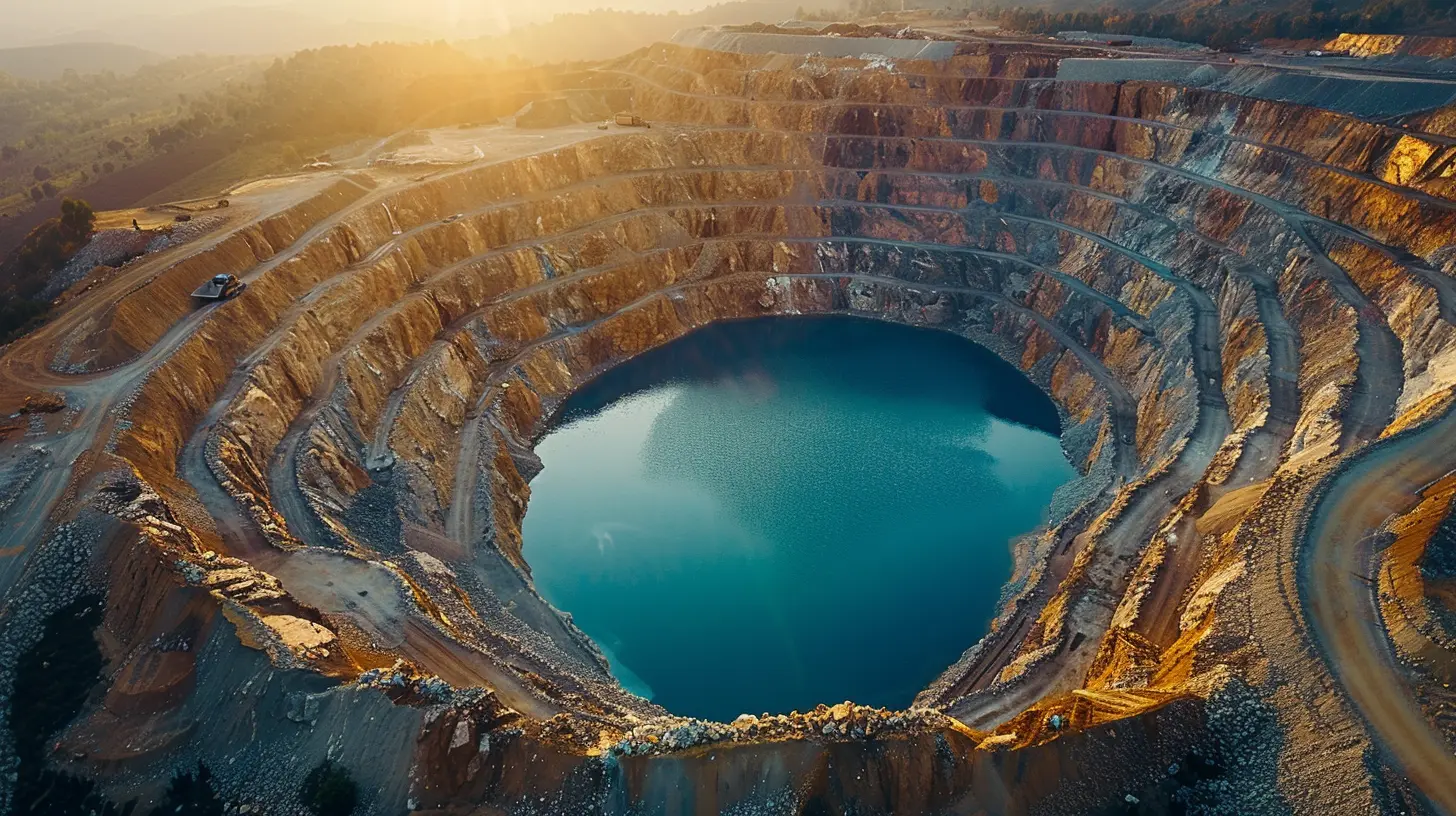
Understanding Gold Mining: More Than Just Digging Dirt
Gold mining isn’t a simple process. It’s not like walking into a field with a shovel and a bucket. Modern gold mining is an elaborate, industrial-scale operation. It usually involves two key methods: open-pit mining and underground mining.- Open-pit mining is exactly what it sounds like—digging massive pits into the earth’s surface to extract ore. While effective, this method can be devastating to ecosystems.
- Underground mining, on the other hand, relies on creating tunnels and shafts deep underground. While it may seem less invasive than open-pit mining, it can still lead to structural damage and other environmental headaches.
And let’s not forget artisanal gold mining, which is the small-scale, often informal mining practiced in some developing regions. While it accounts for a significant chunk of global gold production, it’s also linked to massive environmental and social issues.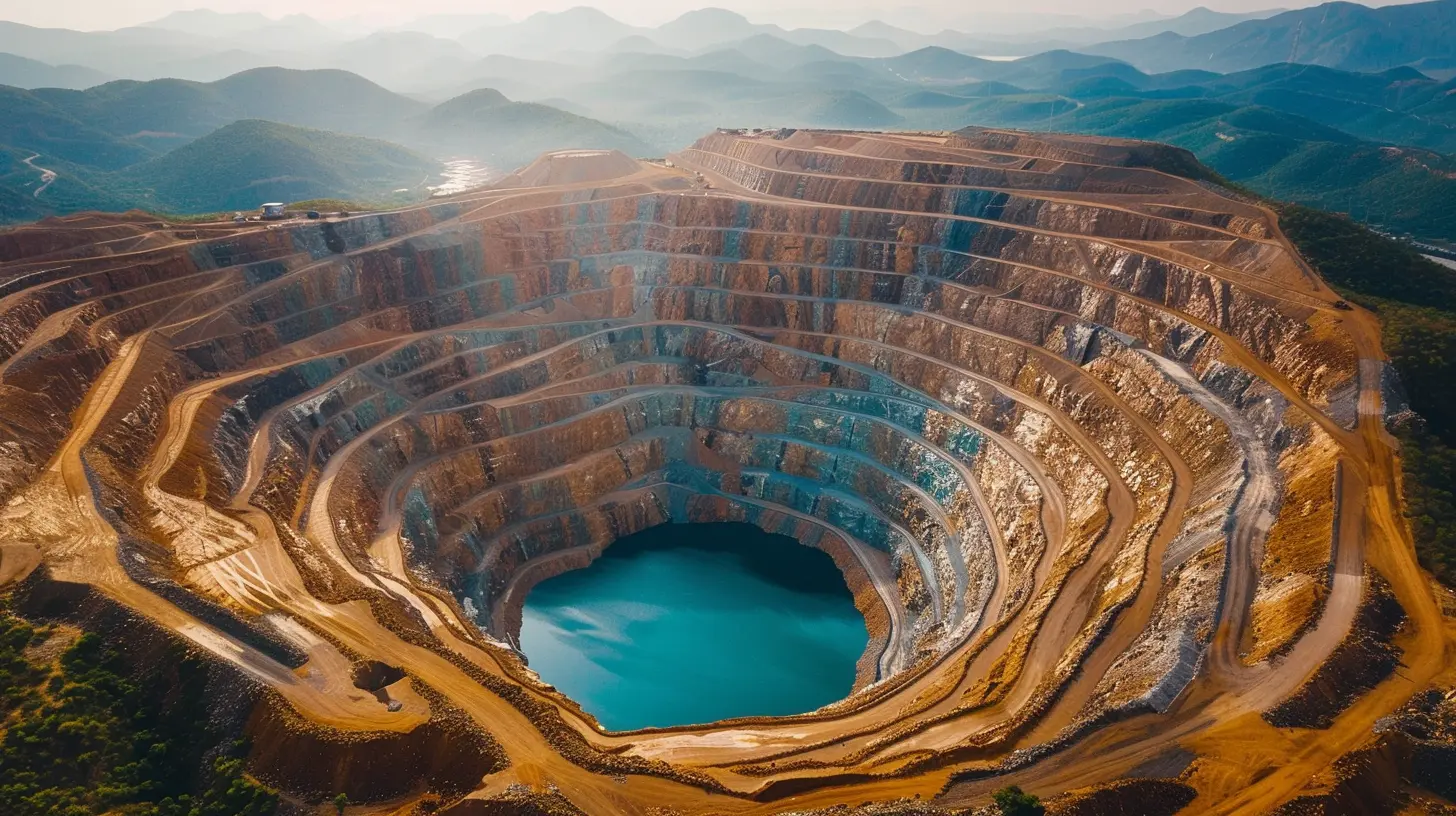
Environmental Consequences of Gold Mining
So, what exactly happens to our planet during gold mining? Unfortunately, the impacts are as vast as they are troubling. Let’s break them down.1. Deforestation: Wiping Nature Off the Map
Mining often requires clearing large swathes of forested land. Gold mines are frequently located in biodiverse areas like tropical rainforests (think the Amazon). These forests aren’t just pretty to look at—they’re crucial to maintaining global climate health.When trees are cut down, carbon stored in the forest is released into the atmosphere. Essentially, gold mining contributes to deforestation and worsens climate change. Think of it as a double blow—losing trees and gaining greenhouse gases.
2. Water Pollution: Poison in Our Streams
Gold mining processes rely heavily on water, and unfortunately, it’s not always returned to the environment in the same pristine condition. One of the culprits here? The use of toxic chemicals like cyanide and mercury.- Cyanide is used to extract gold from ore, but if mishandled, it can leak into rivers and groundwater, creating toxic "dead zones" in water bodies.
- Artisanal miners often use mercury, which is not only dangerous to human health but also contaminates ecosystems for decades.
The result? Polluted waterways that affect wildlife, plants, and even nearby communities that depend on these water sources for drinking and farming.
3. Habitat Destruction: Evicting Wildlife
Imagine turning a thriving wilderness into a deserted wasteland. That’s what happens during gold mining operations. These activities disrupt local ecosystems, destroy habitats, and often force animals to migrate—or worse, perish.Species that once roamed freely in mining areas are now faced with threats of extinction. It’s like bulldozing a neighborhood and forcing its inhabitants to figure out life elsewhere. Except in this case, there’s no relocation plan for them.
4. Soil Degradation: Land That Can’t Heal
Mining strips the earth of its nutrient-rich topsoil. When the mining process is over, it leaves behind barren lands that are often unsuitable for agriculture or reforestation. Toxic chemicals further pollute these lands, making it nearly impossible for ecosystems to naturally regenerate.It’s like taking a razor to your backyard garden and dousing it with poison—what grows back isn’t going to be lush and green anytime soon.
5. Carbon Footprint: A Hidden Contributor to Climate Change
Believe it or not, gold mining is a significant contributor to global carbon emissions. From running heavy machinery to transporting ore and processing it in smelters, the energy required is massive. In some cases, mines rely on coal-powered energy, which only amplifies the carbon footprint.In short, gold mining has a hidden but very real role in worsening climate change—a factor investors can’t afford to overlook.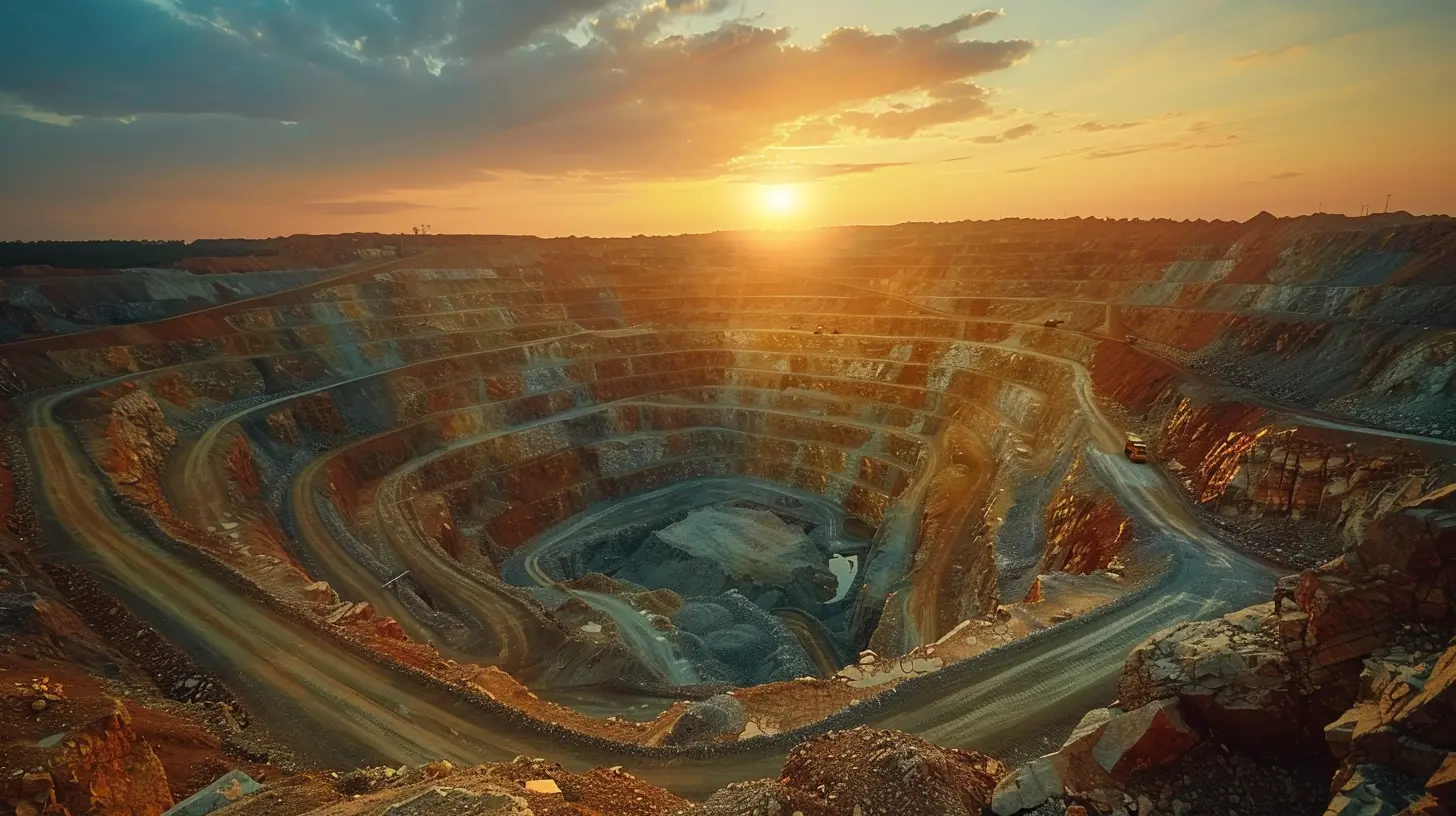
Social Impacts: Beyond the Environmental Concerns
Gold mining doesn’t just hurt the environment; it can also negatively impact people. Many mining operations take place in developing nations, where regulations may be lax or non-existent.Workers often endure dangerous conditions, low wages, and limited rights. In regions with artisanal mining, mercury exposes workers (and their families) to prolonged health risks. Additionally, mining can lead to community displacement, leaving locals without homes or livelihoods.
As an investor, you need to ask yourself: Is profiting from such operations worth it?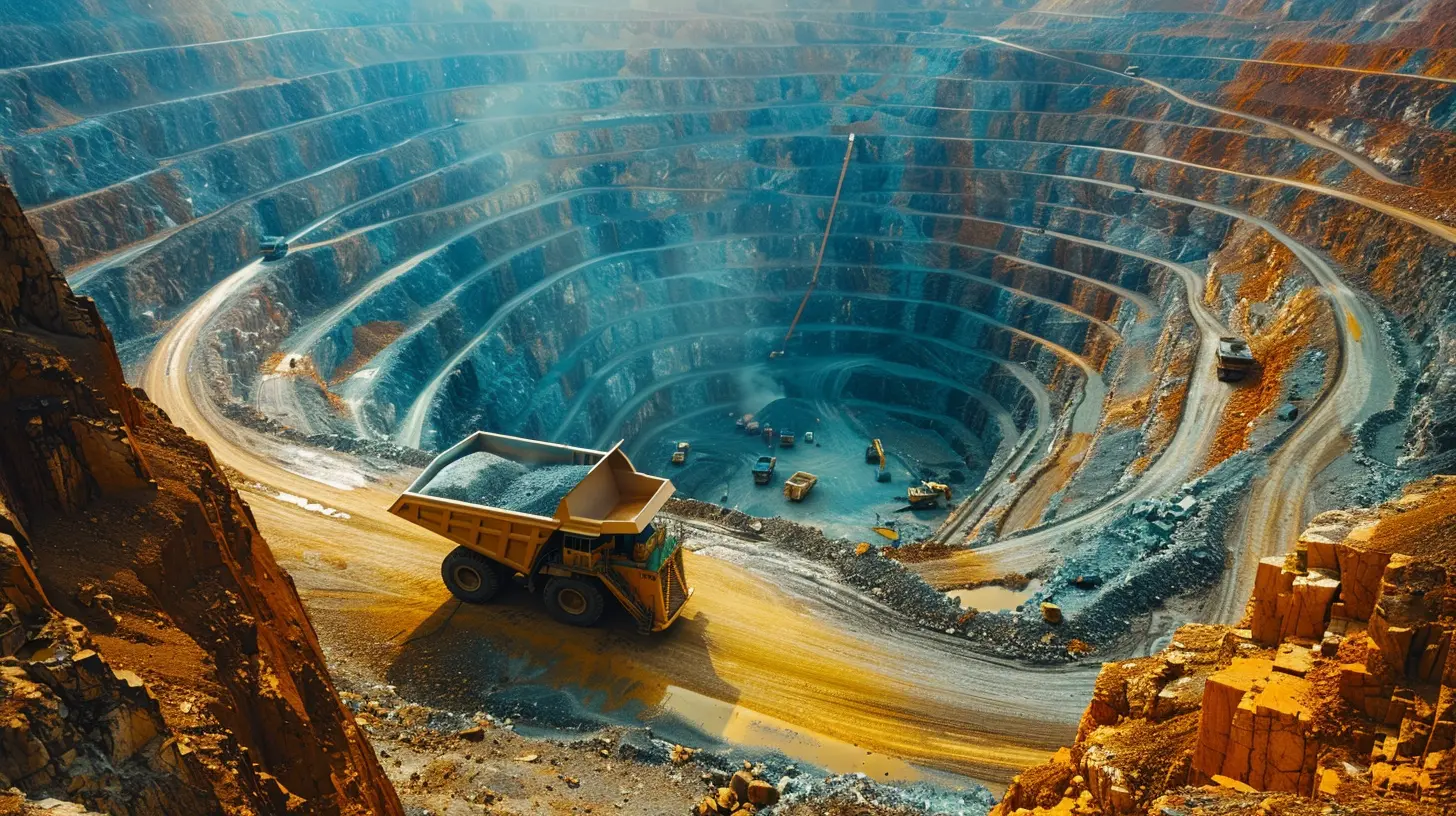
Is There a Way to Mine Gold Responsibly?
This is the million-dollar question—or should we say, the "gold-standard" question? While traditional mining practices are riddled with environmental pitfalls, there’s a growing movement toward sustainable and responsible mining.Here are some practices pushing the industry in the right direction:
1. Rehabilitation of Mining Sites: Many companies are starting to restore mined land by planting trees or turning old sites into protected ecosystems.
2. Recycling Gold: Did you know gold is infinitely recyclable? Using recycled gold for jewelry or other products drastically reduces demand for new mining.
3. Fair Trade Practices: Some organizations now certify gold that’s mined ethically, ensuring workers are treated fairly and environmental standards are met.
4. Innovation in Mining Technology: New tech like bio-mining (using microbes to extract metals) could reduce the need for toxic chemicals and lower the carbon footprint.
What Investors Should Consider
Now, let’s put the spotlight on you, the investor. Does any of this mean you should avoid gold altogether? Not necessarily. Gold remains an important asset, but investing responsibly means making informed choices.1. Research the Source
Before you invest in gold, dig deeper (pun intended). Where does your gold come from? Are the mining companies taking steps to minimize their environmental impact, or are they cutting corners?2. Consider Recycled Gold
Investing in recycled gold—whether directly or through companies that prioritize it—can reduce the need for new mining and its associated damage to the planet.3. Support Ethical Miners
Look into investment opportunities with companies that adhere to fair trade and sustainable mining practices. The bottom line? Use your dollars to vote for businesses that care about the planet and their workers.4. Stay Informed
As more people demand transparency, the mining industry is slowly changing. Keep an eye on industry innovations and look for companies leading the charge in responsible mining practices.A Golden Opportunity for Change
Gold is undeniably a valuable asset, but it comes at a cost, and that cost is often borne by the environment and vulnerable communities. As an investor, you hold power. By choosing to support companies that prioritize sustainability and ethical practices, you’re not just investing in gold—you’re investing in a better future.The next time you consider gold as a part of your portfolio, think beyond its glittering exterior. Ask yourself: What kind of legacy do you want your investment to leave behind? It’s entirely possible to strike a balance between profitability and responsibility—you just have to make the effort.



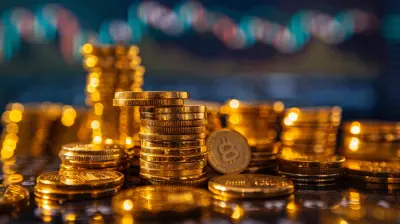


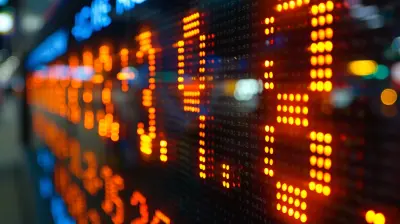



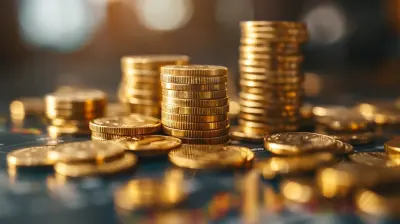


Tristan Spencer
While gold mining presents significant investment opportunities, its environmental consequences cannot be overlooked. Investors should critically evaluate the sustainability practices of mining companies to align financial goals with ecological responsibility.
February 11, 2025 at 5:50 AM